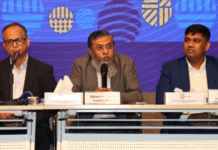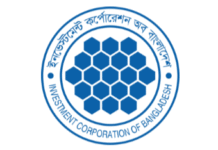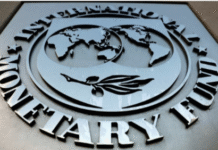
Putting utmost importance to implementation of the budget, former Bangladesh Bank Governor Dr Salehuddin Ahmed said the next budget would have to be pragmatic and should focus more on domestic resource mobilisation and attracting Foreign Direct Investment.
“If you see few previous budgets, all were ambitious…when budget becomes ambitious, then it also becomes tougher to implement. Successful implementation of budget is very important,” he told UNB correspondent Golam Moin Uddin while expressing his views about the next national budget to be placed in parliament on June 6.
The next budget will be the last for the present Awami League-led grand alliance government during its five-year term although it will not get the full fiscal year (2013-14) to implement the budget.
Dr Salehuddin, now a Professor of School of Business of North South University, said that although the next budget is likely to be an election budget, but it should focus on measures towards ensuring economic development.
“If there are higher elements of political motivation, then it would be unfortunate,” he said.
The former central bank governor opined that apart from domestic resource mobilization, much focus should be given on attracting investment to increase the investment ratio to GDP from the present level of 24-25 percent.
Besides, he suggested not taking less important projects or those having no ‘chain effect’ in the new Annual Development Programme (ADP).
He also called for measures to improve skill and efficiency of the executing agencies in project implementation alongside Human Resource Development shrugging off the interference of the political leaders, bureaucrats and different pressure groups.
Dr Salehuddin said the next budget should give emphasis on flourishing of the manufacturing sector alongside prioritizing industries based on agriculture, agro-processing and SMEs to create more employment opportunities.
Indicating some of the major challenges for implementation of the next budget when consistent countrywide shutdowns become a common phenomenon hurting the economy most, he said any kind of political uncertainty affect the investment scenario as it shrinks both the local and foreign investments.
“When there is political uncertainty, then there is policy uncertainty and it adds a new dimension to corruption and lack of transparency in various sectors, and thus deter the pace of development.”
Dr Salehuddin said it is often seen that the development targets of budget are not materialized due to various reasons like lack of resources and capacity amid growing demands. “The government should focus more on its implementation; otherwise, it will lose its credibility,”
Stressing the need for strengthening the budget formulation system, he said that although opinions from the NGOs and economists are sought for formulating the budget, but those hardly get any consideration. On the contrary, opinions from the various vested quarters, chamber bodies and different pressure groups get consideration.
“As a result, budget lacks transparency and accountability since national budget not only means revenue earnings and expenditure, but also to take the country ahead, facilitate poverty alleviation and generate more employment opportunities.”
Citing that domestic industries are not getting due attention in recent times, the former central bank governor said proper attention should be given to domestic industries alongside export-oriented ones.
He also noted that the country is not witnessing balanced development as well as there is presence of inter-regional disparity and individual disparity because those who do not have access to resources are not getting their due facilities.
Mentioning that the country now depends heavily on RMG for its export earnings, Dr Salehuddin said there should be measures to encourage diversification of exports on to the promising ship-building and leather sectors.
Asked what would be the implication if the other Ministries and Divisions do not get higher allocations due to the increase of allocation for Padma Bridge project as indicated by the Finance Minister, he said it will be unfortunate if education, health and social security sectors do not get higher importance because of such infrastructure project.
Source: UNB Connect









